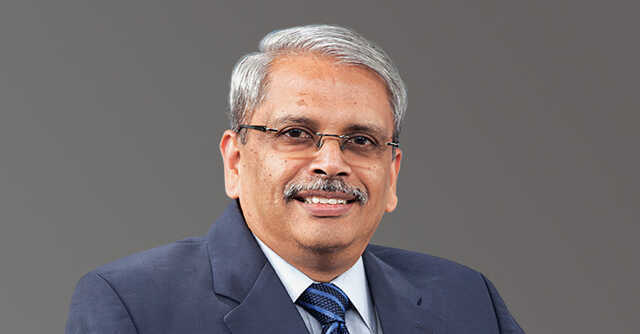
‘Indian researchers need to adopt startup culture’: Kris Gopalakrishnan


Kris Gopalakrishnan who co-founded India's second-largest IT services provider, Infosys, also served as its chief executive officer and managing director from 2007 to 2011. He now serves as chairman of early-stage startup accelerator and venture fund Axilor Venture, and Itihaasa Research and Digital--a not-for-profit think-tank focused on the evolution of technology domains in India. Gopalakrishnan is also the President of the Board of Trustees, Infosys Science Foundation, which gives a $100,000 award annually to each contemporary researcher/ scientist across six categories. In an interview, Gopalakrishnan discussed issues that still hinder research in India, and suggested ways to improve the ecosystem. Edited excerpts:
What are some of the pain points in terms of pure computer sciences today?
The IT industry has figured out how to move from a waterfall model to an agile model. In terms of pure computer science, research mostly occurs in the industry rather than in academic institutions. Interaction between the industry and academia is limited. There are some examples of collaboration, in pharma, mechanical and civil engineering but not many in computer science. However, we are starting to see some deep-tech startups emerge, an example of which is conversational artificial intelligence (AI) company Uniphore, which came out of IIT Madras. It has now moved to the US and scaled to a valuation of $700 million.

Whose responsibility is it to increase interactions between industry and academia?
Both sides. In India the academic institutions and academicians don’t think fundraising is their responsibility. In the US and Europe, the academia raises funds for research. On the industry side, the attitude is to conduct research in-house rather than work with anybody else, so as to control and own the outcome. From the industry side we should transition to external research, especially basic research is something that should be supported. Secondly, the larger companies need to invest into research as a public service. On the academic side, the mindset is slowly changing, and they are now looking to raise funding with the industry.
What are the first few steps that need to be taken? How can such collaborations be accelerated?

A simple metric is that 1.5% of the GDP should be reserved for academic research. We can measure how much a company is willing to spend on research and reserve 50% to be spent on external research, while the other half can be spent for in-house research. Such a move will put more money into academic research. I tell multinationals that if they have $5 in research, they could invest $1 in India to double the output, because the costs of research in India are about 20% of the research costs in the US.
Also, research involves requiring a diverse set of case studies, which can lead to better outcomes. Hence a diverse set of researchers from different cultures and backgrounds can be taken advantage of in India. The academicians need to set audacious goals such as finding a cure for Alzheimer’s, for cancer or create a processor that consumes a tenth of the current power requirements. The culture that startups have is the culture that researchers should have, they have to chase bigger funding and larger goals.
Most companies don’t look past bigger cities when investing in research. What can be done to increase investments in smaller cities?

We need to develop research institutions, engineering institutions, medical colleges in tier two and three cities, because it's typically around these places that you see IT ecosystems coming up. Create the talent pools and then create startups and entrepreneurial ecosystems. This is what the Karnataka Digital Economy Mission’s Beyond Bengaluru plan is all about -- they are looking at places with established capacity for education, and these are Mysuru and Mangaluru that have good institutions. The plan is to create a startup ecosystem here, which will then allow for industries in the long term.
We also need to encourage and incentivize companies to move to tier-2 and tier-3 cities. During Covid, many workers left their apartments and are working out of their hometowns. The government should take advantage of this and create satellite offices and capitalise on the situation to build ecosystems. Mentors and VCs also need to visit these locations periodically to have a look at the work being done by startups.
How can the shortage of digital skills be tackled?

The shortage of skills is a global problem and not unique to India. India is one of the few countries where scaling up is in progress. The IT industry is expected to recruit six lakh people this year, there are few places in the world that can say the same. The industry has to train and retrain them for relevant technologies, which the industry can manage.
The major challenge is the talent crunch. The rapid acceleration of technology, which calls for retraining people. Who pays for retraining? How do we tackle the time that is necessary for training as there is already a shortage of people? When the demand far exceeds supply, it will take some time to bridge the gap.
How do you think artificial intelligence and machine learning (AI / ML) can help in research areas of mental diseases and blood disorders?

In any analysis of data, especially big data, AI/ML are used to automate analysis and generate new inferences from the data. Once trained with sample data, AI/ML tools can augment the expert’s diagnosis. It can help experts and address the issue of not having enough experts. This is a global effort. India must join this global effort since we are 20% of the population of the world. India will also lower the cost of research and the solution, if the research is done in India. We also have a very diverse population and by studying the Indian population, we may arrive at a better solution faster.
